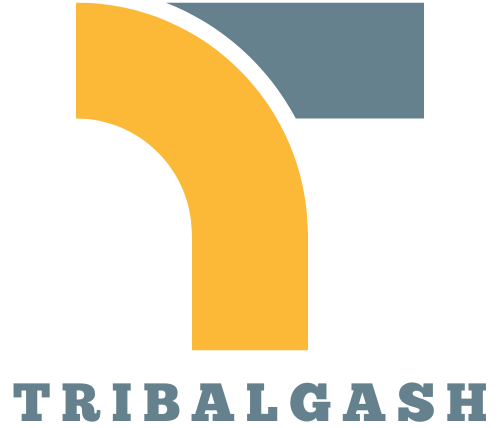In a world where information moves at lightning speed, staying updated is crucial. Enter ChatGPT, the AI that’s ready to serve up answers faster than you can say “data overload.” But just how fresh is the data it relies on? Is it like yesterday’s stale bread or the latest artisanal loaf from the bakery?
Understanding the currency of ChatGPT’s data can make all the difference. Whether you’re a curious learner or a business professional seeking insights, knowing how current the information is can help you avoid the pitfalls of outdated knowledge. So buckle up and get ready to dive into the world of AI data freshness—because who wants to feast on yesterday’s news when you can have the latest scoop?
Table of Contents
ToggleOverview of ChatGPT Data
ChatGPT’s information reflects data available up to October 2021. Users seeking the most current events or trends may find the data outdated. Content generated by ChatGPT draws from a variety of sources including books, articles, and websites, providing a comprehensive knowledge base. Real-time updates aren’t part of its functionality, meaning it doesn’t access or learn from new information after the cutoff date.
In terms of accuracy, information accuracy decreases the longer the time from the last update. Understanding this timeframe is essential for both learners and professionals. Users need to cross-reference ChatGPT’s outputs with more current resources, especially for rapidly changing fields like technology or medicine.
Examples of topics that may have shifted significantly since the last data update include political events, product releases, and scientific breakthroughs. Noticeably, relying solely on ChatGPT for the latest information could lead to gaps in knowledge, particularly in news and research-based contexts.
Consider how the technology landscape evolves quickly. Innovations in artificial intelligence, for instance, emerge frequently, making recent data critical for informed discussions. Integration of diverse knowledge sources remains fundamental for anyone utilizing ChatGPT for serious study or decision-making.
Understanding the Training Process

ChatGPT’s training process significantly impacts the relevance of its information. This process involves analyzing a vast range of data sources collected before October 2021.
Data Sources and Selection
Books, articles, and various reputable websites contribute to its training data. High-quality sources were prioritized during the selection process to enhance accuracy. Diverse fields, such as literature, science, and technology, were represented. It’s important to note ChatGPT does not access any specific user data or private information. Consequently, reliance on selected sources determines the reliability of the generated content.
Timeline of Data Updates
ChatGPT’s last comprehensive data update occurred in October 2021. No new data sources or updates exist since this cutoff date. Users require awareness of this timeline when seeking current subject matter expertise. Rapid changes in information, especially in dynamic fields, render previous responses less accurate over time. Awareness of potential information gaps is essential for effective usage.
Evaluating the Currency of ChatGPT Data
Understanding the freshness of ChatGPT’s data is crucial. While it provides valuable insights, users should recognize that its knowledge is limited to information available until October 2021.
Comparison with Real-Time Information
Real-time information constantly evolves, especially in dynamic fields like finance and technology. Professionals rely on current data for informed decision-making. ChatGPT’s knowledge, however, lacks updates beyond its last training cutoff. Users searching for recent events may find responses misaligned with the latest developments. Therefore, integrating real-time resources ensures accuracy and relevance. Cross-referencing ChatGPT outputs with the most current information is essential for maintaining informed perspectives.
Impact of Data Recency on Responses
Recency significantly influences the quality of responses provided by ChatGPT. Outdated information can lead to misconceptions or misinterpretations, particularly in fast-paced sectors like medicine or politics. Relevant trends or breakthroughs may not be captured in responses drawn from pre-2021 data. Constant change in the information landscape highlights the necessity for continuous learning. Consequently, relying solely on ChatGPT for the latest insights can lead to outdated understandings. Users must seek additional sources when addressing rapidly changing topics.
User Perspectives
User feedback highlights concerns regarding the currency of ChatGPT’s data. Many users appreciate the quick responses but worry about outdated information. Questions about recent events often reveal mismatches between ChatGPT’s outputs and the current context.
Feedback from ChatGPT Users
Users frequently express frustration when seeking latest updates. They comment on the limitations of data restricted to October 2021. Prompting discussions about current events, many find advice less relevant due to this cutoff date. Some users suggest utilizing ChatGPT for general knowledge while seeking real-time sources for specific inquiries. This feedback emphasizes a reliance on integrating multiple resources for informed decision-making.
Applications in Different Fields
ChatGPT serves various fields, such as education, technology, and healthcare, by providing foundational knowledge. In academia, students use it for research assistance, though they remain mindful of data limitations. Professionals in technology refer to it for concepts but clarify that real-time updates are essential. Healthcare practitioners often seek to validate clinical knowledge through contemporary resources. This diverse application shows the need for users to balance ChatGPT’s foundational insights with the latest information.
Future of ChatGPT Data Updates
Future updates for ChatGPT’s data remain uncertain. Ongoing advancements in AI technology suggest a potential for more frequent updates. Developers may prioritize real-time information to enhance user experience. In dynamic fields, rapid access to data proves crucial. Users increasingly rely on up-to-date insights, especially within technology and healthcare.
This demand highlights the importance of integrating current data sources. Relying solely on information from October 2021 presents challenges for professionals and learners. Each field faces unique pressures, especially where information evolves quickly. For instance, political events and scientific innovations can shift overnight. In this context, timely data updates would minimize reliance on outdated information.
Feedback from users consistently underscores these concerns. Frustrations arise when responses do not align with recent developments. Many users express a desire for ChatGPT to incorporate live data feeds. Such an enhancement would bridge the gap between foundational knowledge and current realities.
Developers may also explore partnerships with real-time data providers. This strategy could enrich the quality and relevance of responses. Trusting ChatGPT for foundational concepts remains valid, but augmenting it with current information supports informed decision-making.
Emphasis on the future of ChatGPT hinges on user needs and technological advancements. Regular updates could evolve the platform into a more robust resource in various sectors. Understanding these dynamics ensures that users remain aware of the limitations and possibilities of the tool in their respective fields.
Understanding the limitations of ChatGPT’s data is crucial for users navigating today’s fast-paced information landscape. With its last update in October 2021, relying solely on this tool can lead to outdated insights, especially in rapidly evolving fields.
Users are encouraged to complement ChatGPT’s foundational knowledge with real-time resources to ensure accuracy and relevance. As the demand for up-to-date information grows, future enhancements in AI technology may lead to more frequent updates, potentially bridging the gap between static knowledge and current realities. Staying informed requires a balanced approach that integrates multiple sources for well-rounded decision-making.









